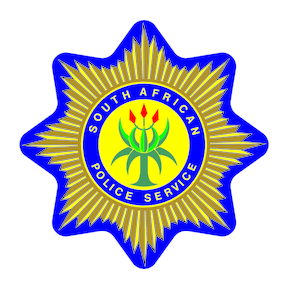With students returning to school and parents going back to work after the holidays, traffic on our road are bound to increase once more. A growing problem in South Africa and on our roads is that of road rage. What are the triggers and causes of road rage and why are there outbursts that can become violent? We've compiled some research into the matter and have come up with some information to assist in making our roads a little bit safer for all of us.
Definition of Road Rage
The problem here is that road rage is more often than not a result of external factors and situations rather than those arising on the road; these include stress, depression and pent up aggression. As a result, minor incidents such as being cut off or throwing a zap sign, have the potential to escalate rapidly into a situation that lacks all sense of proportion and can end in violence.

A closer analysis of the term “road rage” renders the following:
- Rage means to be in an extreme energized state of anger which has accumulated and/or has been suppressed for some time, is triggered and now finds expression in rage like behaviour. Rage leads to elevated self esteem, adrenalin rushes, reduction of rational thought and increase in physical ability. A rage episode will only subside once the emotion has been spent. Typical uncontrolled rage like behaviour would be e.g.:
- Prolonged and excessive screaming and swearing
- Intense verbal attack and abuse
- Serious threatening
- Physical assault
- If this behaviour is exhibited on the road we can say that it is road rage
- That most respondents rated themselves as good drivers and had been driving for at least 16 years
- 63.3% of respondents reported experiencing aggression directed at them on a daily basis
- 47.7% of respondents reported having children in the car during a road rage incident
- 47% of all road rage is generated by young drivers between the ages of 18 and 25
- 1.1% of respondents admitted to assaulting someone during a road rage incident
- 3.4% of respondents claimed to have been assaulted during a road rage incident
10 POINT PLAN TO AVOID "ROAD
RAGE"
- Forget work or home worries, concentrate on driving.
- Plan your journey to reduce anxiety and stress.
- Adopt a positive mental attitude - to help with frustration.
- Play music this can reduce stress.
- Don't try to change other drivers attitudes, you can't but you can change your own.
- Be courteous and stay calm if provoked.
- Drive with your car doors locked and if you see trouble don't leave the safety of your vehicle.
- Count from 1-10 (it's old and it works!)
- Don't retaliate by sounding your horn, flashing your lights or gesturing, this will only aggravate the situation.
- If you are a victim of aggression take the registration number and report incident to the police.

Safe Driving Advice when confronted by road rage
We have shared advice on how to avoid road rage, but what do we do when another is already enraged and confronting us? We have found a few good suggestions from our road safety friends in Canada.
The Société de l’assurance automobile du Québec and CAA-Quebec urge drivers to avoid situations that can lead to confrontation.
Tips on handling situations involving aggressive drivers:
• If a driver is putting pressure on you:
If possible and safe, move to the left and let the other driver pass you.
If you are faced with aggressive behaviour:
Stay calm.
Avoid eye contact with the aggressive driver so as not to exacerbate the situation.
Do not respond to provocative words or actions.
Do not respond with disrespectful words or actions.
Do what you can to avoid conflict.
If an aggressive person leaves his vehicle and heads toward you:
Remain in your vehicle, make sure the windows are shut and doors locked.
Avoid arguing with the aggressive driver, looking at the person or making provocative gestures.
Leave the area and go to a place where you can get help.
Do not go home if the aggressive driver is following you.
If you’re in traffic and can’t drive away, pick up your cellphone and show the person you are calling the Police
If the person doesn’t back off, honk your horn to attract the attention of other drivers.
Note the make of the other driver’s car and his or her license plate.
Report Bad Driving and Road Conditions - 0861 400 600
[SOURCE - AA, Arrive Alive]
Road Rage Video South Africa










0 comments:
Post a Comment